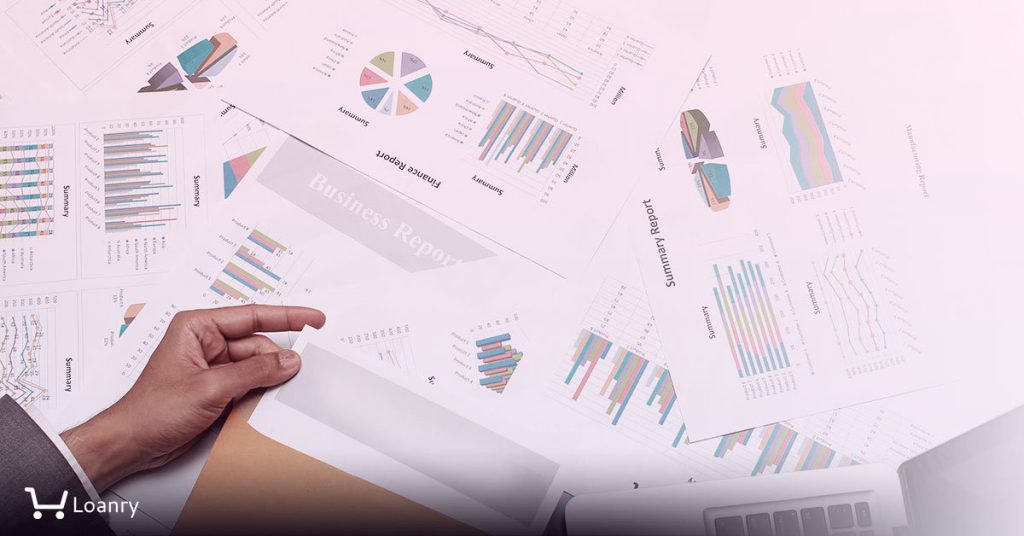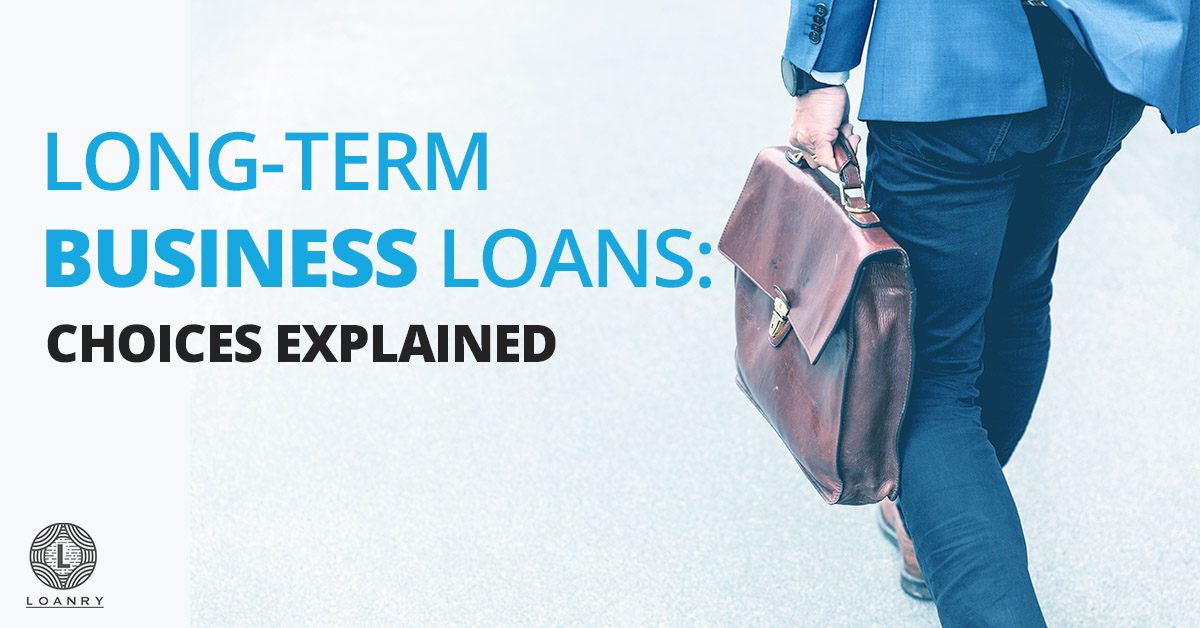We live in complicated economic times. It’s never been easy to own or manage your own business, but the past several years have certainly added wrinkles most of us never anticipated. Then again, you didn’t get where you are by playing things too safe. Small business owners understand perhaps better than anyone the need to weigh their options, consider the possibilities, and the plow ahead. Maybe that means consolidating. Maybe it means expanding. Maybe it requires evolving in some way. Whatever your decision, funding is always a consideration. Is it time to dial back, or invest more in your business? Just what are the pros and cons of small business loans at the moment?
That’s what we’re going to consider today. Some of what we’ll talk about may be familiar to you already. Other considerations may not have crossed your mind. Our goal isn’t to decide for you what you need to do – it’s to help you think through your options more clearly, despite all the noise and distractions. We could all use a little more of that these days, don’t you think?
Let’s start off by clarifying what we’re talking about when we discuss small business loans.
Small Business Loan Basics
In general, small business loans allow you to expand your business, survive seasonal fluctuations, update your technology, or otherwise push your business forward without exhausting your company savings or exposing yourself to unnecessary personal risk. A small business loan essentially offers your operation flexibility and resources beyond what it can manage in isolation.
When things go well, your business benefits from the opportunity and the lender makes a reasonable return on its investment. If things go poorly, however, you may end up with your business weighed down by debt that didn’t accomplish what you’d hoped.
There are several varieties of small business loans. Which one makes the most sense for you depends on your business and your current situation.
Traditional Term Loans
This is the type of loan most of us think of anytime the issue is considered. A financial institution like a bank, credit union, or online lender loans you a lump sum based on your needs, credit history, and ability to repay. Sometimes collateral is required; other times it’s not. You repay the loan in predetermined monthly installments for a set period of time. Interest rates are traditionally fixed for this sort of loan, but adjustable rates might be considered in some cases.
The advantage to this sort of loan is that you acquire the full amount up front and can largely spend it however you think best for your business. A traditional term loan can offer great flexibility and, with the right terms, make it easier to accomplish your small business goals. In addition to local banks or credit unions, many online lenders specialize in offering very competitive terms on relatively small, short-term small business loans.
Potential disadvantages are largely determined by your credit history, either personally or as a business. Unless you’re able to secure a reasonable interest rate and favorable repayment terms, you risk putting your small business into debt for more than you gain from whatever you do with the loan. You’re also committing yourself to regular monthly payments for an extended period, whether business is great that month or not. The larger the loan or the longer the repayment period, the better credit is typically required.
SBA Loans
These are term loans backed by the Small Business Administration. They’re logistically similar to traditional term loans, but with a few important distinctions.
The biggest advantage of an SBA loan is that because they’re guaranteed by the federal government, these loans often offer better rates and similar or slightly lower fees than non-guaranteed loans. On the other hand, SBA loans are sometimes a bit harder to qualify for. Because you’re going through a government institution, there may be a bit more paperwork and additional requirements before approval.
Don’t assume you won’t qualify based on your business history or recent credit problems. The only way to be certain you won’t get an SBA loan is not to try.
Microloans
These loans are a subcategory of SBA loans in some way and they are given to newly established start-ups or small businesses, including non-for-profit childcare centers. SBA makes the fund available to nonprofit community-based lender up to a maximum of $50,000 per borrower. However, the average loan size is substantially lower at $13,000.
Microloans can be particularly beneficial if you’re a veteran or you can claim membership in any category other than the traditional “straight white male” small business owner. We can argue the politics of it some other time; for now, it’s a wonderful opportunity for traditionally underrepresented entrepreneurs to kickstart their vision.
Even if you are a straight white man, it could very well be worth looking into the Microloan program anyway. There are all sorts of factors which might mean you qualify.
Line of Credit Loans
These loans operate in many ways like a credit card for your business. (In fact, many small businesses choose to utilize a company credit card to accomplish the same thing.) The application process is similar to any other small business loan, but once approved, you only withdraw the amount you need at that moment. You can spend as much or as little of the total available in whatever way you like as long as you make the required minimum payment each month.
The major advantage of a line of credit loan (or small business credit card) is that you’re not paying interest on the money you haven’t spent yet. You don’t have to do everything at once to make effective use of your line of credit – you can pay as you go. Repayment is based on the total amount utilized so that monthly obligations can be managed through the strategic timing of your spending. Unlike a traditional loan, every time you make a payment lowering your balance, those funds become available for you to borrow again as needed.
The potential disadvantage is one familiar to any credit card user. Unless you pay attention and avoid letting your balance swell month after month, it’s easy to spend more than absolutely necessary and to let your balance and monthly interest payments pile up. It’s often harder to qualify for a line of credit loan than for a more traditional small business loan, but thanks to the proliferation of online lenders, this is no longer as true as it used to be. Interest rates largely depend on your credit history, but as you continue to meet your repayment obligations, you put yourself in a position to secure better and better terms.
Equipment Loans
If you’re looking to expand your business via the purchase of new or better technology or equipment, this may be the loan for you. When considering the pros and cons of small business loans, the two most common issues that come up over and over are qualifying for the loan and securing decent terms. An equipment loan improves your position in both categories.
The advantage to an equipment loan is that it includes natural collateral for the loan – the equipment being purchased. Because the value of your purchase is presumably pretty close to the amount borrowed, lenders have greater protection in the event you default on your payments or otherwise prove unable to pay. Much like an auto loan or home mortgage, your personal and business credit history certainly matter, but they’re not all the lender has to go on when considering your application.
The downside, of course, is that if you default on repayment for any reason, the lender could seize equipment essential to the operation of your business. Any business expansion assumes the resulting growth will offset expansion costs relatively quickly. If it does not, you may be left paying for expensive equipment or other materials which haven’t had the impact you’d hoped on your bottom line.
Merchant Cash Advance (MCA)
This is a short-term option which relies primarily on your business’s cash flow. Lenders offer small, short-term advances in exchange for direct access to a set percentage of your revenues. Repayment is deducted from your account automatically based on an agreed-upon formula.
On the one hand, merchant cash advance offers great flexibility and convenience for your small business when you know money will be coming in soon, but you need the cash now. Because repayment is based on a percentage of your revenue, you repay more when times are good and your obligation decreases during slow periods. You’re less likely to end up owing a large monthly installment when business has been unexpectedly slow.
On the other hand, MCAs are typically one of the most expensive forms of financing available. Fees can be high and interest rates reflect the unpredictable nature of the loan. In other words, these can be short-term solutions or seasonal strategies, but you probably don’t want to rely heavily on merchant cash advances over the long haul.
Invoice Factoring / Invoice Financing
Both invoice factoring and invoice financing rely on your small business’s outstanding invoices as “assets” or “collateral.”
With factoring, the factor (they’re not officially considered “lenders”) purchases your outstanding invoices at a discount and takes on the responsibility for collecting those balances. You get the cash and they profit only if they secure repayment on their own. The downside is that you’re giving up a sizeable slice of revenue in exchange for rapid access to the funds. Not every customer is thrilled to discover they’ve been “handed off” to what sometimes seems like a collection agency (but isn’t).
Invoice financing, on the other hand, is an actual loan for which repayment is guaranteed by your outstanding invoices. The money currently owed to you by customers becomes security for the loan. As with factoring, however, you tend to sacrifice a higher percentage of your revenue in order to get what’s left more quickly. This can give you the pliancy you need to navigate difficult periods, or it can inject increasing instability into your business as you scramble to get back on top of your profits.
Investors / Partnerships
The ideal scenario is for some rich uncle or weird acquaintance from college to hear about your efforts to start your own business and offer you a blank check to get in on the action. These “angel investors” provide working capital with minimal interference in exchange for a reasonable return when and if you become wildly successful.
More commonly, you might consider taking on investors or even forming a partnership in order to combine resources. The pros and cons of this have been covered elsewhere, but basically you’re giving up a little (or a lot) control in exchange for better funding.
Kickstarting / Gofunding / Online Campaigns
The 21st century has introduced a wide range of options for pitching your ideas to others and giving them a chance to chip in on your dream. The rules vary from site to site, as do the pros and cons. In general, however, these sorts of sites work best for specific projects or limited goals. They’re not really set up to sustain an ongoing operation in a meaningful way.
Interesting Small Business Statistics:
- 69 percent of entrepreneurs in the United States start a businesses from home.
- According to the National Association of Small Business’s 2017 Economic Report, the majority of small businesses surveyed are LLCs (35 percent) followed by S-corporations (33 percent), corporations (19 percent), sole proprietorships (12 percent), and partnerships (2 percent).
- Out of the 50% of those asked, “What’s the best way to learn more about entrepreneurship?” responded with “Start a company”.
Conclusion
These are challenging times for many people, and for small businesses in particular. But that doesn’t mean it’s not possible to succeed in the face of those challenges. The right financing and effective strategizing can propel you forward while so many others are still trying to figure out how they ended up so far behind.
Goalry has never been about telling you what’s best for you or your business. We prefer to offer insights, tools, and connections to the sorts of financial options which were only available to a handful of insiders a generation ago. The Goalry blogs break down complex financial ideas into easy-to-understand terms with practical examples. The Goalry App makes it easy for you to track your various accounts, categorize your small business spending, evaluate investment options, compare insurance companies, and conveniently navigate dozens of other fiscal decisions all in one central location.
Life is complicated enough without having essential information and tools scattered all over the internet or divided up into countless hiding places. Some are experts in dentistry, others know their chemistry, history, optometry, or podiatry. You may excel at microbrewery, puppetry, or archery. We’re all about goals – hence the name: Goalry.
Whether your goals are, short-term, long term, personal, financial, or whatever else you decide is important to you, we’d like to help you get there. Dreams are wonderful, but steps are what move us towards them. At Goalry, our priority is to help you take more effective control of your personal or small business finances – to get focused and stay organized so that you can better accomplish whatever your goals happen to be. Sometimes that’s weighing the pros and cons of small business loans, other times it might mean evaluating the benefits and risks of refinancing your mortgage or helping you figure out how to start saving for retirement when you’re already worried it’s too late.
Whatever your goals – and whatever’s stopping you from reaching them already – let us help. They may be closer than you think.

Blaine Koehn is a former small business manager, long-time educator, and seasoned consultant. He’s worked in both the public and private sectors while riding the ups-and-downs of self-employment and independent contracting for nearly two decades. His self-published resources have been utilized by thousands of educators as he’s shared his experiences and ideas in workshops across the Midwest. Blaine writes about money management and decision-making for those new to the world of finance or anyone simply sorting through their fiscal options in complicated times.









